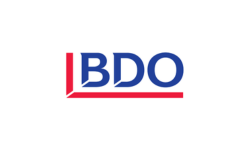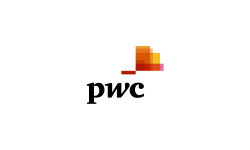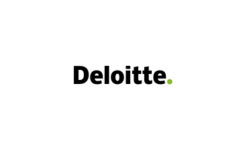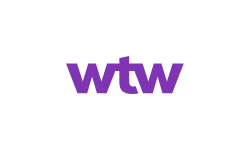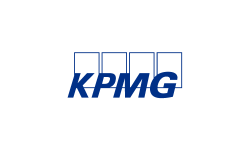Overseeing non-financial crises

Philip Sidney (ps@lintstock.com) is a Senior Associate at Lintstock, a London-based corporate governance advisory firm specialising in board effectiveness reviews. To read Lintstock’s report to the All Party Parliamentary Corporate Governance Group in full, please visit lintstock.com/boardoversight
Philip Sydney reports on Lintstock’s latest research report for the APPCGG which assesses the impact of the Covid-19 pandemic and the war in Ukraine on UK boards.
The events of the past three years have arguably posed the greatest challenge to corporate boards since the global financial crisis, with the important difference that the principal shocks between 2020 and 2023 – namely the Covid-19 pandemic and the outbreak of war in Ukraine – have been notably non-financial in nature. Whereas the key learnings from 2007-2008 centred on the management of financial risk, these non-financial crises have implications for boards in a much broader range of areas: supply chain disruption, geopolitical tensions, employee well-being, digital transformation, social responsibility, environmental awareness and many more.
For Lintstock’s latest report for the All Party Parliamentary Corporate Governance Group (APPCGG), we wanted to get a sense of the impact of the coronavirus pandemic and the Ukraine war at the top of UK corporates – accordingly, we asked the boards of leading UK companies about the long- term implications of the events of the past few years, and how they would change corporate governance going forward. Over 150 Directors and Company Secretaries participated, and we are grateful to them for their engagement and their candour.
The resulting study – Board Oversight in Difficult Times: Out of Covid into War – explores the six topics that stood out most prominently in the feedback we received. There was plenty of diversity of thought here, and a spread of (sometimes forthrightly expressed) opinions, which we hope provides boards, governance professionals, regulators and legislators with useful insight into where corporates are at the present time.
1. Risk management
While we had some clients who were lucky enough – or insightful enough – to have both a pandemic and a war on the European continent on their risk registers, it is fair to say that many boards were blindsided by Covid and the Ukraine war.
The past few years have clearly left boards with a lot to think about on the topic of risk management: there was a sense that focus on the minutiae of risk registers and matrices had left boards unsighted on their vulnerability to external shocks, and it is clear that boards have renewed their focus on risk – one FTSE 250 Chair suggested that boards should ‘think more intensely, more imaginatively and more thoroughly’ about potential threats. There was a spread of opinion on the degree to which boards should try to ‘expect the unexpected’ in spotting the next big risk: one FTSE 250 SID felt that boards should make sure they are looking down the right ‘end of
the telescope’ on risk, and not cast the net too wide. In their words, ‘just as no-one sees the car that knocks them down, boards are not crystal ball merchants’.
Having worked through a real-life example of a catastrophic risk materialising, boards are now focusing on their internal capabilities so that they can see off their next threat.
2. Resilience and agility
The crises of the last few years have underlined how swiftly and severely events can overtake companies – and the sentiment among the board members we heard from was that this will continue. A FTSE 100 non-exec told us that ‘the mindset has changed to “do not expect a return to lasting stability”’. Accordingly, agility and resilience were seen as the key hallmarks of a successful company going forward.
Lessons have been learned from Covid in this respect: the pandemic forced companies to be more agile and adaptable, which was then valuable when confronted with the disruption caused by Russia’s invasion of Ukraine. Boards got used to making quick decisions under considerable pressure, and companies become adept at implementing those decisions at pace. As well as being swift-footed enough to respond
to shocks, organisations also need to have the resilience to withstand those shocks in the first place; the best-positioned companies going forward will be those that are sufficiently flexible to move quickly when needed, but also have sufficient financial, material, and human resources to hunker down and ride out the storm when necessary.
3. Technology and AI
It will not be news to anyone that Covid profoundly impacted companies’ digital capabilities and use of tech. Lockdown restrictions imposed a technology transformation virtually overnight, and those who failed to adapt – as one FTSE 100 non-exec pointed out – went to the wall. Nowadays it is more than ever the case that technological capability is a hallmark of a successful company.
That said, the commentary we received suggests that the growing dependency on IT and digital is a double-edged sword – having plugged into the digital revolution, companies are committed to continual investment or risk falling behind their rivals, and cyber security is also a prominent concern.
A number of board members identified AI as a significant risk – boards are conscious that AI could change the business paradigm but are wary of whether it will be to their companies’ advantage or detriment. We spoke to one Company Secretary whose organisation had incorporated AI into their pricing mechanisms, who told us that AI was both crucial for the survival of their business and ‘terrifying’ in its risk implications.
4. ESG
The increase in focus on ESG was one of the governance developments of the past few years that came up most frequently – as one FTSE 250 Chair put it, ‘sustainability has rightly taken centre stage’. Success is now measured across a broader range of metrics, with emphasis on stakeholder value as well as shareholder value and greater consciousness of companies’ social and environmental responsibilities. There is, as a Small Cap non-exec indicated, ‘a greater weight on being compassionate, and a good citizen.’
That said, there was resistance among many respondents to the focus on ESG, and in particular to the reporting burden it places on businesses. It’s clear that the requirements and practices in this area are still maturing in the UK, and striking the right balance can be difficult – it has been interesting to us to see many of our international clients questioning whether they went too hard, too fast with respect to their public ESG commitments.
5. People
Companies’ relationships with their employees was another area of intense focus in the feedback we received. Covid brought boards closer to their organisations’ workforce, and that appears to be continuing – as a FTSE Company Secretary put it, there is ‘a strong sense that we are all in this together’.
Covid has rewritten the contract between companies and the workforce, but it has also recalibrated employees’ expectations around working practices. Working from home is an ongoing point of tension, and in particular there is concern that lack of time spent among colleagues in the office is having a pronounced effect on younger employees, leading to a ‘demonstrable gap in early talent’ in the words of one FTSE 250 executive.
The challenges in this area are sharpened by the tightness of the labour market at present –the war for talent ‘has become an arms race’, as one FTSE 100 Company Secretary said.
Attracting, retaining and developing talent typically topped boards’ lists of HR priorities before the pandemic, and the pressures in this area mean that employee engagement will need to remain high on the agenda.
6. The UK environment and policy
One of the most striking aspects of this year’s study is the level of pessimism from respondents with regard to the UK business environment. Strong opinions were expressed on the regulation and compliance burden that companies face – the term ‘nonsensical meddling’ was used by one FTSE 100 Director – and regulatory and political uncertainty that makes long-term planning impossible: a FTSE 100 non-exec decried ‘thoughtless game-changing policy leaps which overnight blow up business models’.
In their commentary board members made reference to challenges around productivity, taxation, infrastructure and many more challenges, and stressed the impact that they have on the UK’s importance and competitiveness as a centre of finance and influence. This will be difficult reading for those with an interest in the success of UK plc, but it will hopefully provide food for thought for regulators and legislators as they work to make the UK attractive to external investment and talent.
Conclusion
So where do boards stand coming out of this period? Having managed their way through the shocks of Covid and Ukraine, boards are conscious of the complex and interconnected set of challenges they face in this era of non-financial crises. They are expected to oversee their organisations’ preparedness for a huge variety of threats – among them geopolitical aggression, supply chain failures, political instability and climate change, with the threat of reputational consequences if they don’t get it right. As one FTSE 100 non-exec put it, ‘there is a bewildering range of risks’.
The sense we got from this study, however, is that boards are now battle-hardened and conscious of banking the lessons from the past crises in order to make it through the next one – whatever it may be.
If you've enjoyed this content, subscribe today for
3 months free of our exclusive governance insights.
Register to receive our FREE Interim newsletter which alerts you to the latest information about the fast-developing world of corporate governance.

